“Heard the cuckoo?”
The male cuckoo’s repetitive and easily recognisable song, arriving with the flowering of the lady’s smock and the greening of the hawthorn, established it long ago as a staple of seasonal conversation.
The call is easy to describe, and to imitate, and on a still early morning in late April or May its two notes can travel a long way, over the woodlands, heathlands and wetlands that they briefly call home in Britain.
In recent years confusion is perhaps more of a risk than it once was, with the conquest of our rooftops by the collared dove and its three note coo-COO-coo.
This may have contributed to a rise in bogus claims of cuckoo, including in the depths of winter.
But if someone tells you they’ve heard a cuckoo at Christmas you are perfectly entitled to reply, “I don’t think so, sunshine. Have a look at that pigeon on your guttering.”
Genuine cuckoos spend the winter in Western Africa, and the precise seasonal movements of a few individuals are now tracked by satellite.
Visit the pages of the BTO and you will see, for instance, that ‘Trent’, who was tagged last year in Worcestershire, spent much of the winter in Angola. He’s now on a trajectory back towards England, having departed Africa and arrived in Spain last Thursday.
Although their numbers have declined sharply, and they have disappeared from many parts of England and Wales, cuckoos can still be heard in places where there are a) enough big hairy caterpillars to eat, and b) plenty of small birds with strong parental instincts to be misdirected.
A female cuckoo might lay up 25 eggs individually in different nests in one season.
In wetlands, reed warblers provide the top target, while pied wagtails, dunnocks and meadow pipits are the favoured unfortunates elsewhere.
These host birds don’t seem to know they’re raising a baby cuckoo, even at the point when they’re feeding an insatiable monster that’s many times their own size.
I wonder how the first ‘cuck-oo’ of spring sounds to them?
The cuckoo we see in Britain (Cuculus canorus) is also known as the common or Eurasian cuckoo, and can be found across Europe and Asia in the summer. They are one species among 147 in the family Cuculidae, which is spread across the world and includes coucals and roadrunners as well as many other cuckoos.
Read about the cuckoo’s ecology in Britain on the BTO website, where you can also explore their migration journeys and support the BTO’s cuckoo tracking project.
Free talk, this coming Tuesday:
The Birds of Alnmouth, with Tom Cadwallender
I love hearing from people who know their part of the world and its wildlife so very well.
Tom Cadwallender is a skilled and enthusiastic birder, who brings to life the bird stories of his local patch of Alnmouth in Northumberland, a place he’s watched closely for 35 years.
Tom has kindly agreed to give us an hour to bring his patch alive, with pictures of the many birds he has seen at Alnmouth and stories about his adventures there.
It’s free, just sign up to access the link - 8-9pm on Tuesday 23 April.
Find more birds with Birdsong Academy! Now booking:
Half-day birdsong ID workshop in Stanmer Park (Brighton) - Saturday 18 May
Totally fabulous event… Really appreciate your warm human gentle teaching - thank you. - Maggie, Brighton
Dawn chorus experience with nightingales and Swedish pastries, at The Secret Campsite, East Sussex on Friday 10 May.
Many, many thanks for a beautiful and informative bird song chorus - the three of us loved it! So much info and so relaxed. - Helen, Eastbourne
Up With The Birds - our ‘crowdsourced dawn chorus’ (free, 4 May)
Thanks for reading and listening. This is instalment #16 in 2024’s cycle of Shriek of the Week. You can catch up with Willow Warbler, Swallow, Green Woodpecker, Blackcap, Nuthatch, Starling, Chiffchaff, Collared Dove, Wren, Dunnock, Great Spotted Woodpecker, Robin, Great Tit, Song Thrush and Blackbird (that last one includes an explanation of how this all works in 2024).
Many thanks to James, Cathy, Clare and Dwana for your recent support.
Media credits:
Title / thumnail image: Original by Chris Romeiks and modified by Bogbumper, reproduced under GFDL 1.2, via Wikimedia Commons
Main article cuckoo image by Andy Morffew, licenced under CC BY 2.0, via Wikimedia Commons




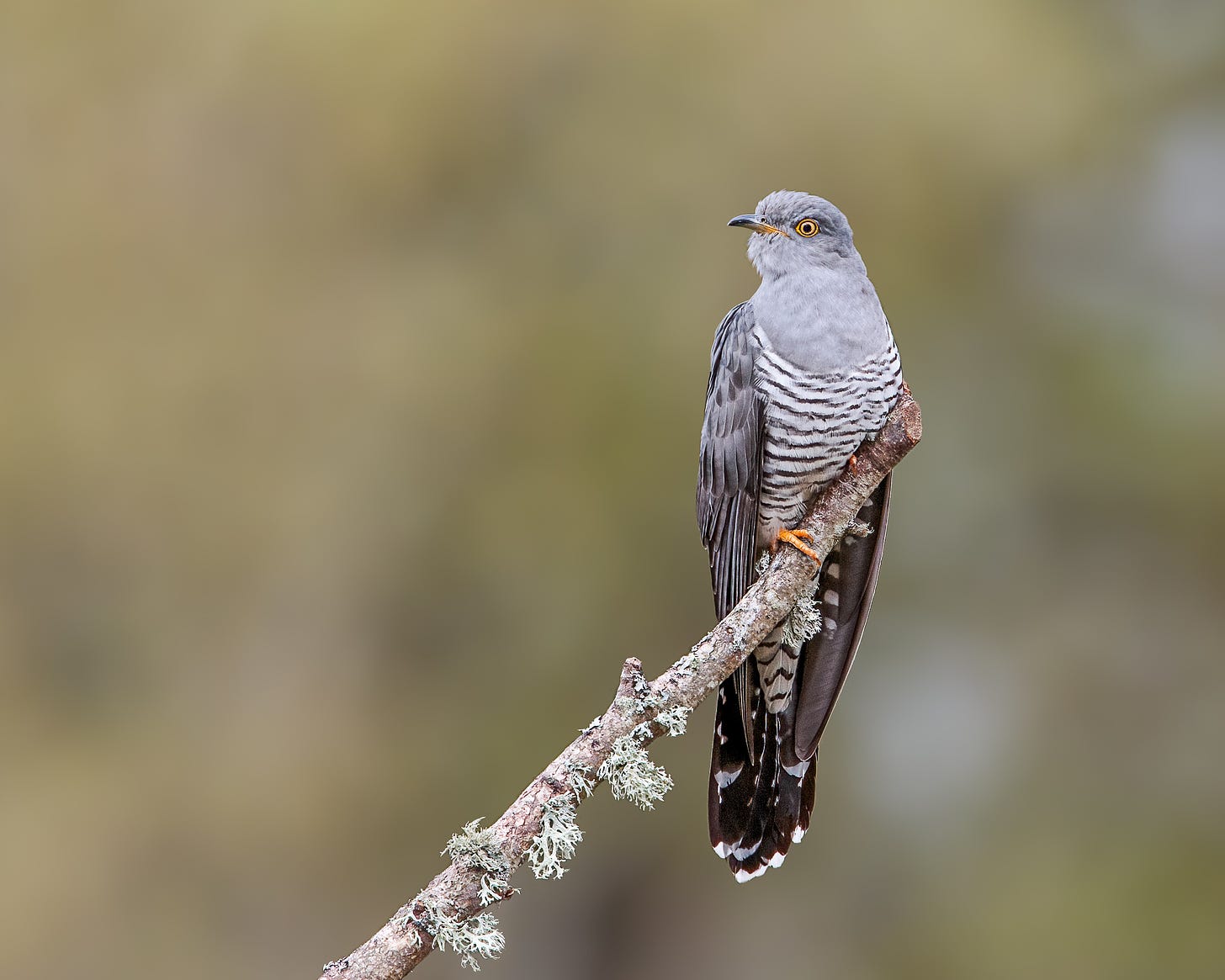
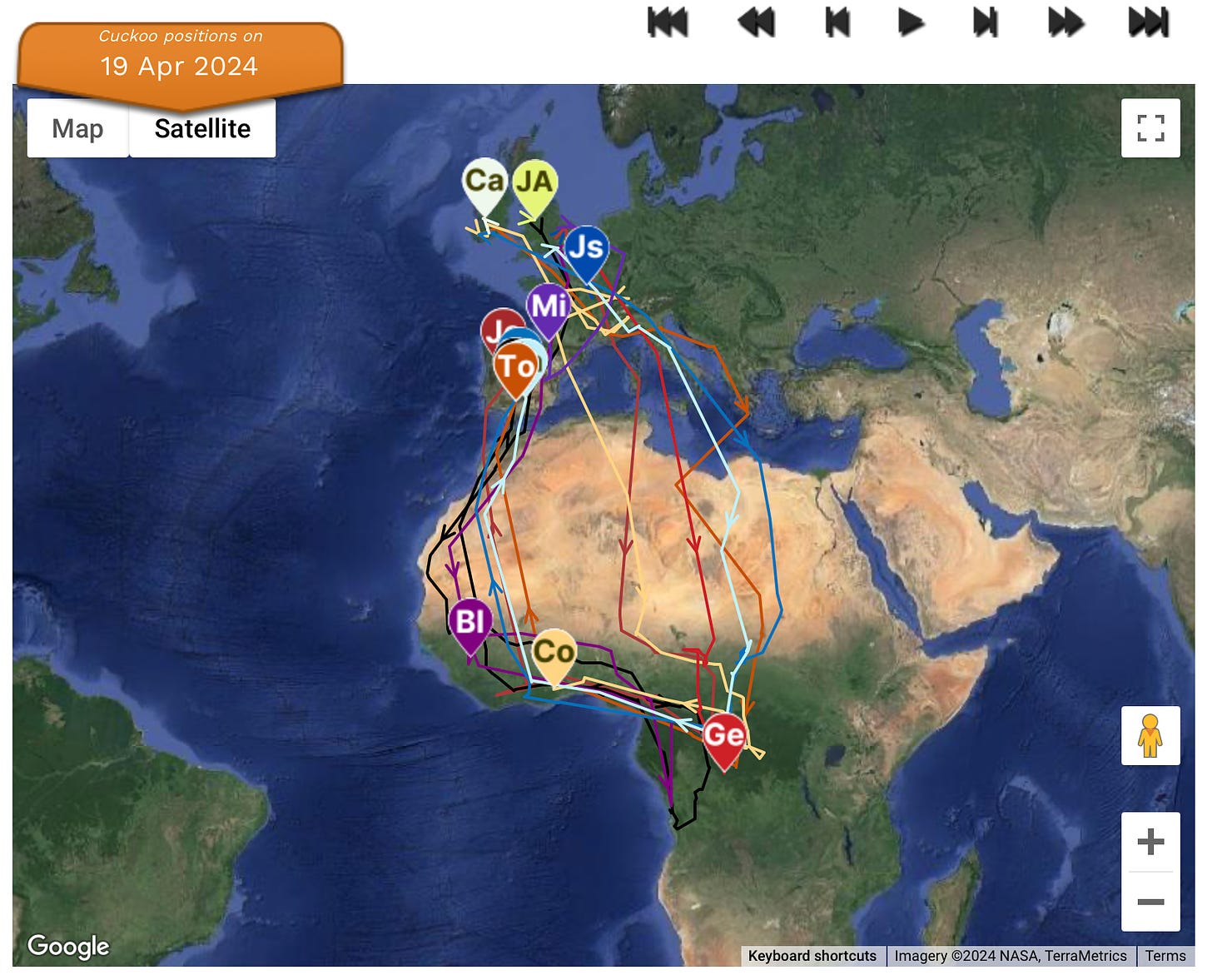
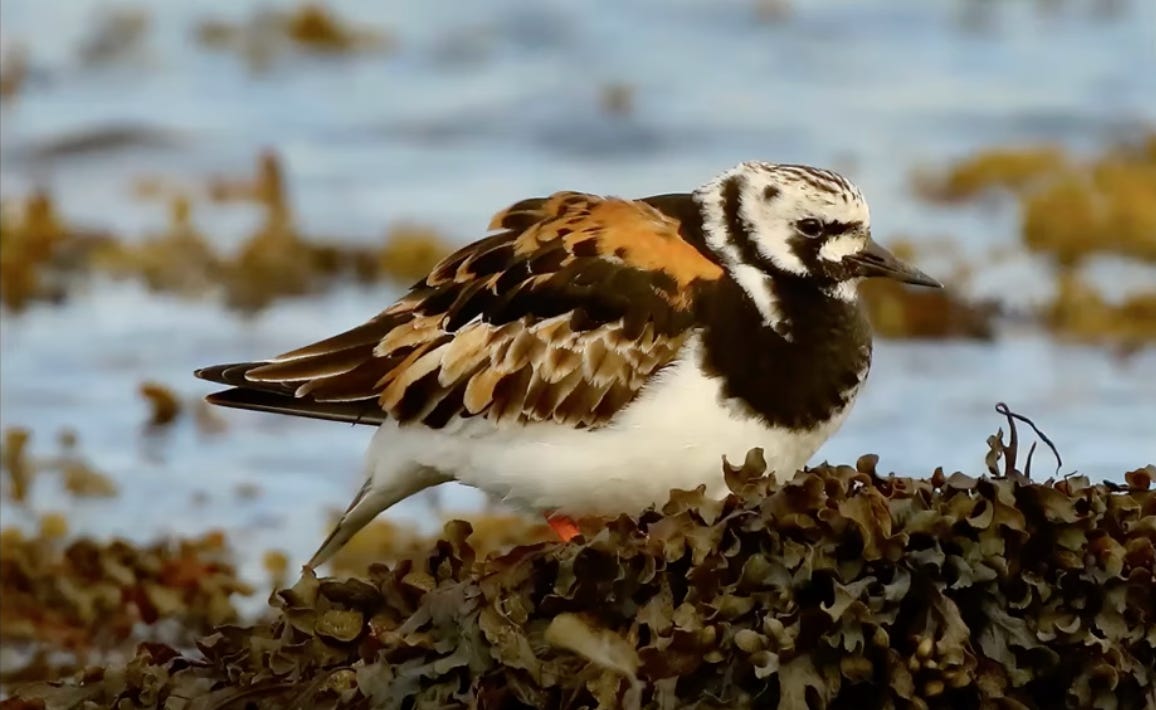


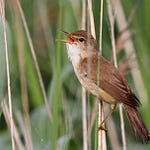
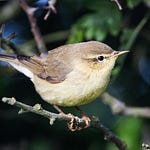
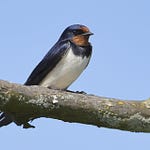
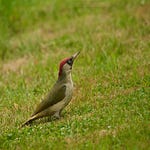
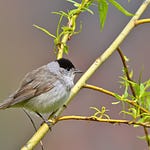
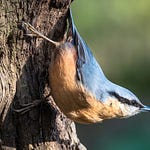
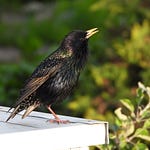
Shriek of the Week: Cuckoo